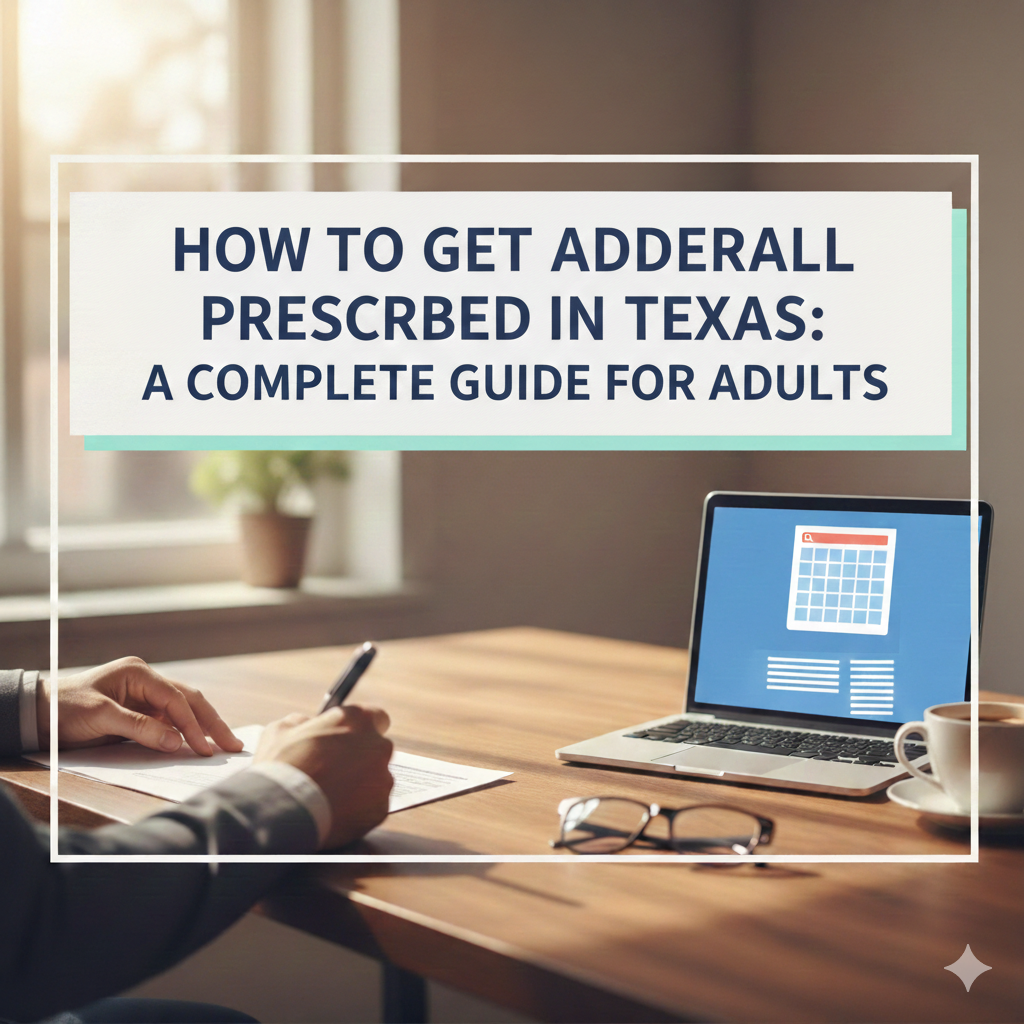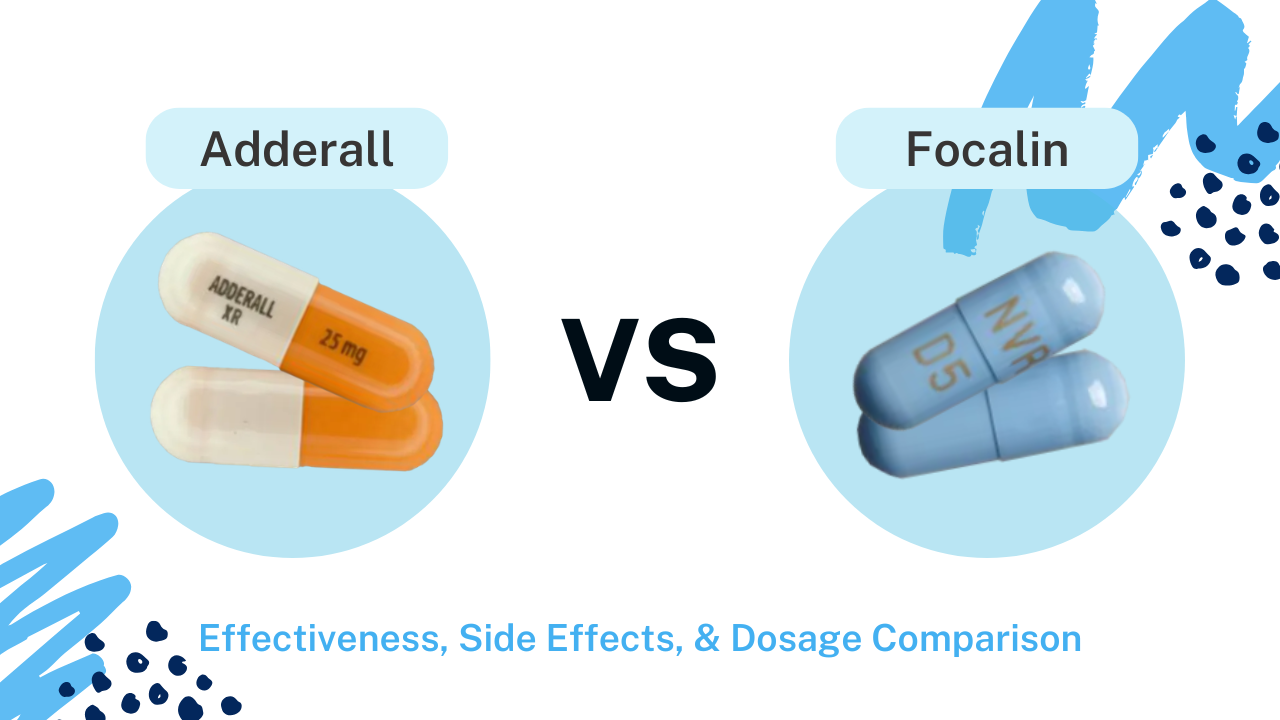Same Day Online ADHD Diagnosis
ADHD assessment?
What Are ADHD Accommodations in College?
Transitioning from high school to college is a huge, life-changing event that can be scary for most young adults. But what about those with ADHD? Research shows that students in college with ADHD experience more academic problems and maintain a lower GPA average than students without ADHD.
One reason for academic struggle is that college requires higher executive functioning from students with ADHD than high school did. They must learn now to manage their housing, eating, laundry, organization, budgeting, study habits, as well as the actual classroom and academic work that's involved.
Now, you are probably asking yourself, “Can you get accommodations for ADHD in college?” The answer to that question is yes. Fortunately, colleges offer accommodations for students with ADHD. However, requesting accommodations for ADHD in college is slightly different from doing so in high school, and there's a specific process to follow, which must be initiated by the student, not the parent.
ADHD is a legally protected disability under Section 504 of the Rehabilitation Act and the Americans with Disabilities Act (ADA). In order for students to receive accommodations for ADHD in college, they must provide documentation, and the request must be approved by the disability services office. Let's take a closer look at how to request accommodations for ADHD in college so you or your loved one can get started on the process as soon as possible.
Can You Get ADHD Accommodations in College?
ADHD is a recognized disability in colleges and universities under the ADA and Section 504 of the Rehabilitation Act. Students can get ADHD accommodations in college, but they will need to ask for them. As a student, you will need to reach out to the college’s Office of Disability Services or Accessibility Office and submit a formal application, then work with the college to receive accommodations for ADHD.
You will need to take the initiative to submit documentation supporting your ADHD diagnosis and request accommodations. It's not a matter of automatic transfer from high school to college, but rather a proactive step you need to take. Remember, your parents won't be able to apply for accommodations for you; it's your responsibility to self-disclose your learning disability.
Some ADHD accommodations for college students that may be offered to you include:
- Extended time for papers and projects
- Additional time on exams
- Distraction-free testing environments
- Provided note-taker (recorded lectures)
- Other reasonable accommodations that you ask for
How to Apply for ADHD Accommodations (Step-by-Step)
Let's break down the easy, step-by-step process for how to get ADHD accommodations in college.
Step 1: Get an Updated ADHD Diagnosis and Documentation
The first step to getting accommodations for ADHD in college is to gather your important documentation. You will need a recent and up-to-date diagnosis letter from your provider, typically within the last 3–5 years.
If you did receive any accommodations in high school and have an IEP, or a 504 plan, then you should also obtain copies of those. You should also include something either from a previous teacher, parent, or doctor stating how ADHD affects your academic success. Then create a list of specific reasonable accommodations that would work well for you to perform your best in college.
If you need an updated evaluation, you can take a comprehensive psycho-educational evaluation, which will help determine your academic strengths and weaknesses, as well as your functioning abilities, and offer an opportunity to identify specific academic modifications.
At ADHD Advisor, we offer online testing for ADHD and diagnostic reports that you can use when applying for accommodations for ADHD in college.
Step 2: Contact Your College’s Disability Services Office
Once you have gathered all of your essential documents, you can contact your college's disability services or accessibility office. You can call or email them to schedule an appointment to discuss your ADHD accommodations and submit all necessary documentation. The university may have additional documentation that they require; if so, the office will let you know.
Step 3: Submit Required Paperwork
Once you speak with the disability services office, and they inform you of the necessary documentation to apply for accommodations for ADHD in college, you'll gather all the required information and submit it.
You may need to complete a form, have a diagnostic letter from your provider, and submit a personal statement detailing how ADHD affects your learning and outlining suggested accommodations. Any relevant test data can also serve as additional evidence. You will need to mail, email, submit them through a student portal, or simply drop off your documentation in person at the office.
Step 4: Meet With a Case Manager
After you submit all of your documentation, you'll meet with a case manager. This person is responsible for reviewing your case, understanding your unique needs, and recommending appropriate accommodations.
During this conversation, you will need to provide details about your learning struggles and mention some of the last accommodations that worked well for you in high school, if applicable. If you have never had accommodations before, then you can mention what accommodations you believe will help you succeed while in college.
Step 5: Receive the Accommodations Letter
After you meet with the case manager, you will receive a Letter of Accommodations (LOA) if you are approved. This letter outlines the specific accommodations you are eligible for. You will then need to submit this letter via email to your professors or hand it to them on the first day of class.
Some students find it helpful to do this before the semester begins, as everyone is often busy at the start of the school year. The important thing is that you ask for the accommodations that the disability services center agreed on, because a professor may not give you additional accommodations that were not explicitly discussed with the disability services case manager.
Common Accommodations for Students With ADHD
Let's take a look at some of the common accommodations for students with ADHD and how they can potentially help you. Some common accommodations for ADHD in college include:
- Extended time on tests: Having extended time to take tests helps to reduce anxiety and processing delays.
- Assistance with note-taking: Utilizing note-taking apps or smart pens can help alleviate working memory challenges.
- Reduced-distraction testing environment: Helps to support students with better attention and focus during exams.
- Priority registration: Early registration allows students to choose an ADHD-friendly schedule.
- Recorded lectures: Can help students review anything that they may have missed in the classroom.
- Flexible deadlines: Reduce the overwhelming feeling that comes with having executive dysfunction.
- Coaching or academic support referrals: Add structure and accountability support for students.
You can find more types of potential college accommodations at Understood.org.
High School vs. College: What Changes?
When comparing ADHD accommodations in high school vs college, there are a few significant differences that you should know about. First, in college, as students are now adults, they are responsible for self-advocating and applying for accommodation services. Students who received accommodations in high school are not guaranteed to receive the same accommodations in college.
High school students with accommodations are protected under the Individuals with Disabilities Education Act (IDEA). Students requesting accommodations for ADHD in college are governed under the Americans with Disabilities Act (ADA) and Section 504 of the Rehabilitation Act.
In high school, your parents would initiate the request, but in college, you will need to apply to the disability services office yourself. The Family Educational Rights and Privacy Act (FERPA) is a federal law that prohibits parents from accessing their child's academic information, including any accommodation requests related to disability services.
Students must take the lead and self-advocate. In high school, teachers had to accommodate, but in college, accommodations depend on the professor's discretion and the submission of valid documentation.
What to Do If You're Denied Accommodations
So what happens if your request for accommodations for ADHD in college is denied? The first step would be to contact the disability services office to learn the reason for the denial. You would like clarification on why your request was denied.
Perhaps you just need additional documentation, or maybe your diagnosis letter is too outdated, and they require a new one from a healthcare provider. Either way, it's a good idea to figure out why your request was denied first. Then, you should find the school's appeal procedure, which is typically accessible on the disability office's website. If it was denied based on incorrect documentation, get the appropriate documents and resubmit them.
ADHD Advisor can help update your diagnosis letter for you or provide a formal evaluation if that is what you need to receive your accommodations.
If your appeal is denied, you may consider seeking professional help from CHADD, another advocacy group, or an attorney to assist you with your next steps.
ADHD Advisor Can Help With Testing, Documentation & Support
If you need any testing, documentation, or support when requesting accommodations for ADHD in college, ADHD Advisor can help! Our online ADHD testing meets most college documentation requirements.
If you need an updated diagnostic letter, ADHD Advisor can help you. Our healthcare providers can administer ADHD evaluations and provide the necessary documentation to support your request for ADHD accommodations in college.
We also offer ongoing treatment for ADHD. We provide therapy sessions and medication management, including non-stimulants nationwide and stimulants in select states.
FAQs About ADHD in College
Do all colleges offer ADHD accommodations?
No, not every college will offer ADHD accommodations. Some universities are private and may not receive any federal funding; therefore, they may not be legally required to accommodate.
However, any college that accepts federal funding, including financial grants, is required to provide reasonable accommodations to students with ADHD. The ADA considers ADHD a disability, and most colleges are required to offer reasonable accommodations for students with disabilities, including ADHD.
Will my high school IEP carry over?
No, your high school IEP for ADHD accommodations will not carry over to college. However, you can certainly use your IEP from high school as documentation when you apply for accommodations for ADHD in college with the disability services office.
To apply for eligibility, submit your high school documentation, your doctor's diagnosis letter, and any relevant medical evaluations. Remember to self-identify, as colleges do not automatically provide accommodations.
Can I get accommodations for anxiety too?
Yes, you can receive accommodations for anxiety in college. Anxiety disorders are protected by the ADA, and most colleges will provide reasonable accommodations for anxiety, too, as it is recognized as a disability under the ADA.
What if I'm undiagnosed but suspect ADHD?
If you suspect that you might have ADHD, the first step is to reach out to a healthcare provider to get a proper evaluation. ADHD Advisor provides telehealth services for individuals with ADHD, and you can take our quiz to see if you qualify for an evaluation appointment with one of our licensed clinicians.
Final Thoughts
Going off to college for the first time can be a scary, but important step in your life. There's no reason to think that ADHD should hold you back. In high school, you didn't have to worry about many responsibilities because your parents managed all the paperwork. However, as you transition into adulthood, it's important to take charge of significant aspects of your life that your parents will no longer handle for you.
Do not wait and let college overwhelm you. If you have ADHD, reach out to the disability services office as soon as possible so that you can get the support that you need. Remember, ADHD is protected by the ADA, and you have the right to an education just like everyone else.
ADHD is a real concern, and asking for accommodations can help you succeed. These adjustments are not cheating; they level the playing field. If you struggle with focus or attention, it’s completely okay to request the support you need to get the education you deserve.
ADHD Advisor works with licensed providers that can give you a formal evaluation via telehealth to determine if you have ADHD or not. If you need documentation to apply for ADHD accommodations in college, take our quiz today.





.svg)
















